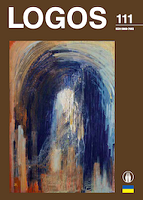Voltaire & Rousseau: nuo žodžio laisvės visuomenės sutarties link
Voltaire & Rousseau: From Freedom of Speech to Social Contract
Author(s): Gediminas MesonisSubject(s): Ethics / Practical Philosophy, Political Philosophy, Social Philosophy, Social Theory, Sociology of Politics
Published by: Visuomeninė organizacija »LOGOS«
Keywords: Voltaire; Jean-Jacques Rousseau; freedom of expression; social contract;
Summary/Abstract: The article examines the systematicity of theoretical legacy of Voltaire and Jean-Jacque Rousseau. It is concluded that the legacy of Voltaire, a defender of freedom of expression, has contributed to contemporary perception of the limits of this freedom. The existence of freedom of expression, according to the article, is an initial presumption en route to social contract, the concept of which was developed by Rousseau. The article actualises the legacy of Voltaire in several aspects. It, first, provides justification for Voltaire’s critique of the Church and religion: at a time, the state and the Church were not separated, therefore, inevitably, affairs of the church were public affairs. Whereas the need to rethink limits of the content of freedom of expression arose when religion was separated from the state and became a "private" affair. It is the opportunity to express one’s position (Voltaire) that forms the basis for speaking freely and entering social contract (Rousseau). It is concluded that Rousseau’s theory of concept of social contract continues to be relevant due to its ontological justification. The systematic connection among Voltaire’s and Rousseau’s legacy is established in the article – a social contract is not possible if those, who conclude it, do not exercise freedom of speech.
Journal: LOGOS - A Journal of Religion, Philosophy, Comparative Cultural Studies and Art
- Issue Year: 2022
- Issue No: 111
- Page Range: 6-16
- Page Count: 11
- Language: Lithuanian

